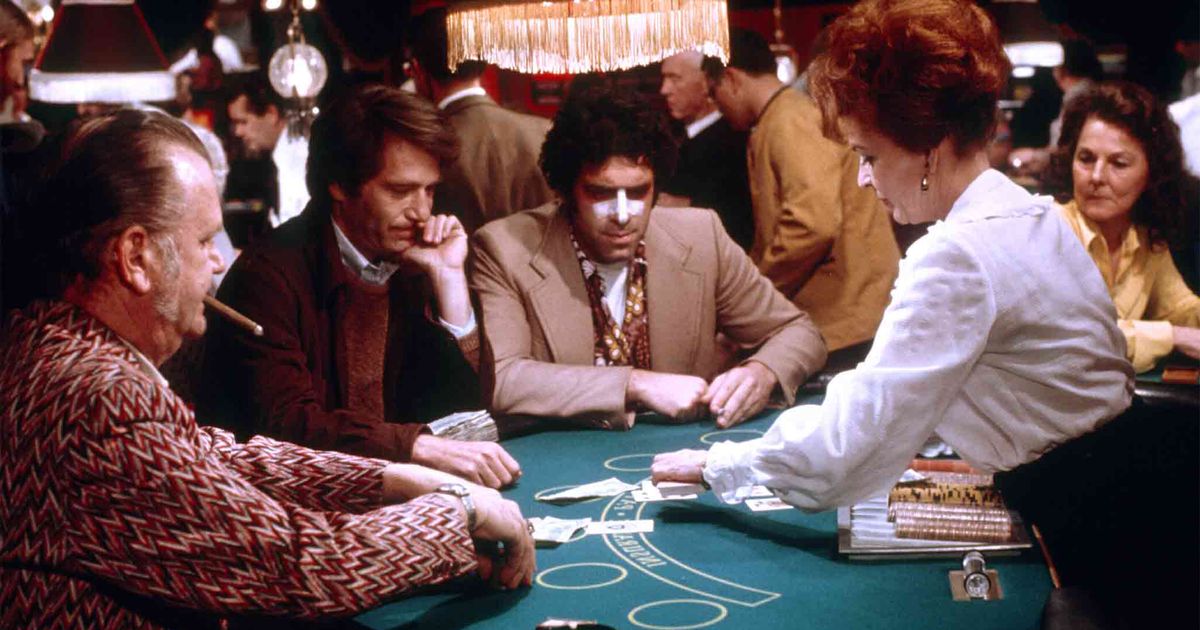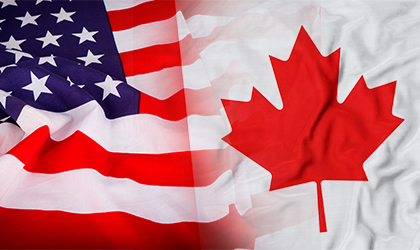When Did Gambling Become Legal In Canada
Think gambling is a relatively new phenomenon in Canada? Think again. Of the two wordsGambling and Canada, the latter is actually way ahead on the Canadiangambling timeline.
- When Did Gambling Become Legal In Canada Today
- When Did Gambling Become Legal In Canada 2019
- When Did Gambling Become Legal In Canada 2020


Canada was born in 1867, but long before the guy who adorns the 10-dollar bill becameour first Prime Minister, the natives were testing their luck with various forms ofgambling.
The Criminal Code of Canada makes it illegal to gamble or conduct any gambling activities within Canada unless they fall within exceptions set out in the Criminal Code. The Criminal Code of 1892/1910 First enacted in 1892, the Criminal Code has undergone many changes over the years to tolerate gambling under certain conditions. Until several decades ago, most forms of gambling in Canada were illegal while that gambling which was permissible (for example, on track betting at horse races) was narrowly restricted. This situation was transformed with Criminal Code amendments in 1969 and 1985, which spurred a proliferation of legal gambling formats licensed.
In 1497,JohnCabot discovered a native population who played games of chance. The games weresaid to help their physical, mental, and spiritual growth. Cabot dug deeper into thephenomenon and unearthed proof that people were gambling as far back as the year 6000B.C.
Of course, dice and cards weren't the norm way back then. The gambling scene in Canadaback then involved sticks and pebbles, but the basic gambling concept was the same.
But just because something had been done for years, it doesn't mean that it would remainrespectable.
An outright ban of gambling - and a change of heart
In 1892, theCanadianCriminal Code banned every form of gambling. That didn't last too long,though. As times changed, so did perceptions on gambling. In 1900, bingo and raffleswere permitted for charitable purposes. Ten years later, horse racing was added tothe list of acceptable forms of gambling. And in 1925, fairs and exhibitions weregranted the right to hold gambling events.
In 1969, the Canadian government saw huge value in lotteries. So they amended theCriminal Code to allow both the federal and provincial governments to run lotteriesto fund special projects. The very first lottery was held in 1974 to raise funds forthe Olympics in Montreal.
Over the years, the provinces were given more rights to run lotteries, horse races,video slot machines, and casinos. Today, you can find casinos in almost everyprovince in Canada. And over the years, they've become huge attractions for peoplewho love to gamble and be entertained.
The casino-government relationship in Canada varies from province to province. Insome provinces, casinos are owned and operated by the government. In otherprovinces, they're owned by the government but operated by private enterprise. Nomatter who runs them, they're big business generating big profits.
The rise of land-based casinos in Canada
$439 million. That's how much Caesars spent on renovating and rebranding the casinoin Windsor, Ontario a few years back, which is now known as Caesars Windsor. TheOntario casino on the Detroit border rivals some of the high-end casinos you'd findin Sin City.
On the surface, a half-a-billion dollars seems like a hefty figure to spend onrenovating a casino that was already serving its purpose and attracting crowds.Prior to the transformation, Casino Windsor wasn't exactly a dump. Sure, it wasshowing some age, but you can find a lot less impressive casinos across theU.S.
And it's not like people who love to go to Vegas are going to suddenly stay homebecause a casino has been remodeled to feel like Vegas. Nothing can replace LasVegas, and diehard Sin City fans will still head to Nevada to get their casinofix.
So who exactly was Caesars competing with? Some argue it was MGM on the Detroitside. But let's face it. Detroit is, well, Detroit. And citizens on both sides ofthe border would much rather head to the much safer Windsor than deal with who knowswhat in Detroit.
The real competitors live thousands of miles away, but as close as just a clickaway.
How online casinos and poker rooms have changed the game
For Canadians, gambling is all about options.
Today, thousands of real money online casinos dominate theCanadian casino space. Hundreds of poker rooms and literally thousands of differentonline casinos do what the government couldn't do - bring a casino into the homes ofpeople who love to play games of chance.
And you don't even have to search hard to find one. In Canada, it's common to seeadvertising for free-play poker sites and casinos on national broadcasts, includingsporting events.
Billions of dollars are being spent on gambling by Canadians, and online casinosthat aren't necessarily based in Canada are taking a bulk of the money. So does thatmean that the government casinos are taking a hit? Not necessarily.
In Ontario, the government has authorized several new casinos to be built. PrivateLas Vegas enterprise has jumped at the opportunity of operating a casino in Toronto,Ottawa, Kingston, and elsewhere, and it's only a matter of a few years before new,luxurious gambling palaces open up.
If anything, online casinos are actually fueling interest in land-based casinos. Formany, playing online doesn't replace playing live just as buying a CD doesn'treplace going to a concert. If you love gambling, you'll be after all sorts ofgaming experiences - online and live.
Just look at the World Series of Poker for proof. In 2001, before the online pokerboom, there were 612 entrants in the Main Event of the World Series of Poker. In2012? A total of 6,598 players took a seat in the Main Event.
How the world views gambling today
Online gambling has actually broughtsemi-professional gambling into the mainstream - and it's completely changed thesocial perception of gambling. Just take a look at poker again for proof. Prior tothe 2000s, if you told someone you played poker for a living, you were viewed as adegenerate gambler or a criminal. People assumed you played in illegal card rooms orin underground basement casinos. And if you got far enough in the conversation totell them you played in legal poker rooms in Las Vegas, they'd likely assume thatyou live in your car, trying to repay a series of gambling debts.
Today, if you tell a new acquaintance that you play poker for a living, they mightassume that you're well off, perhaps living in the lap of luxury. If you're playingpoker for a living, the new argument goes that you're obviously making good money atit.
The change in perception comes from the fact that we've all watched doctors,lawyers, accountants, day traders, college professors, and all kinds ofprofessionals trade in high-paying jobs for poker chips. We all realize thatgambling is more than dropping chips on the felt and crossing your fingers. It'sabout knowing how to make the right bets at the right time, and it's aboutoutsmarting your rivals.
The future of gambling in Canada
For Canadians, gambling is all about options. In Canada, you can play online. Youcan play in a government-run casino. You can head to a racetrack. You can play inprivately operated casinos, like Caesars Windsor. You can play pretty muchanywhere.
When Did Gambling Become Legal In Canada Today
That's the reality today. But what does the future hold?
When Did Gambling Become Legal In Canada 2019
As the provinces get into the regulated online casino space - British Columbia andQuebec both have casino sites, and Ontario is building one as we speak - Canadiansare going to have even more choice. The provincial online casinos might have to joinforces to create a national online casino if they want to compete with internationalsites that have a decade-long head start.
But no matter who comes out on top - whether government online casinos,international online casinos, or a healthy mix of everyone - one thing is almostcertain. Canadian gamblers will continue to have tons of choice. And at the end ofthe day, that makes the Canadian casino player the ultimate winner.

In the modern world, the idea of life without the internet is an almost unthinkable prospect. There’s a whole generation of people that have never known a time when the web didn’t exist. Many of us have become practically reliant on online access as part of our everyday lives, and the internet has had a huge impact on so many things. The way we communicate, the way we shop, and the way businesses operate have all changed dramatically thanks to the World Wide Web.
The internet has had a significant effect on many industries, and few more so than gambling. From small beginnings, online gambling has become a business worth billions of dollars. There are hundreds of gambling sites providing all kinds of different products and services to customers all over the world. Anyone with an internet connection can easily play casino games, place wagers on sporting events, play poker, and much more.
When Did Gambling Become Legal In Canada 2020
On this page, you will find information on how the various forms of gambling have evolved online. We have also provided detailed histories of some of the major gambling sites and the technology and software companies that have played a big part in the development of this industry.